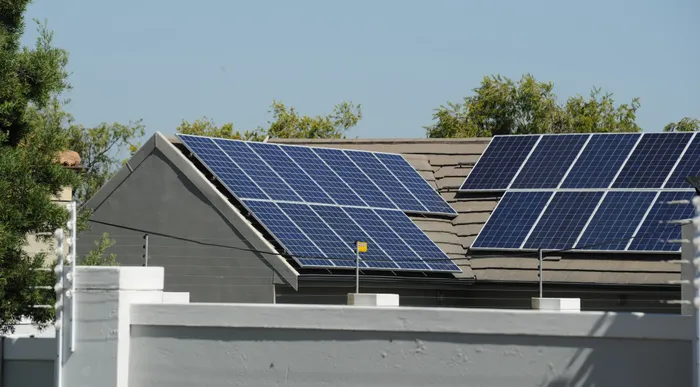
Residents and businesses in the City of Tshwane will be allowed to generate electricity by means of renewable energy sources such as solar photovoltaic as part of the metro’s plan to reduce its dependence on the national grid under Eskom.
Image: Henk Kruger / Independent Newspapers
The City of Tshwane Council's newly approved embedded generation and energy wheeling policies will go a long way in supporting households, businesses, and independent producers in generating their electricity and feeding it back into the grid.
Member of the Mayoral Committee for Utility Services Frans Boshielo believes that the approval of embedded generation and energy wheeling policies is a significant step forward in the city's energy transition.
The approval comes eight months after the council passed a report mandating a public consultation process prior to implementing the policies.
According to the report, residents and businesses in Tshwane have been empowered to generate electricity using renewable energy sources like solar photovoltaic, as part of the metro's plan to reduce its reliance on the national grid under Eskom.
The policies aim to provide better energy security and navigate the city's evolving energy landscape.
Boshielo expressed delight that the policies are part of the new administration's efforts to support households, businesses, and independent producers in generating their electricity and contributing to the grid.
“We are creating a system that is well-managed, fair, and ready for the future of energy. In simple terms, embedded generation is when people or businesses generate electricity mostly using solar panels and connect it to the city’s grid. Energy wheeling is when someone who produces electricity sells it to another user, and the electricity travels through our municipal grid to reach the buyer,” he explained.
However, he cautioned that power-generating activities require proper regulation to ensure safety, fairness, and network stability, noting that the policies would provide the city with a framework to achieve this.
Before approval, the city conducted extensive public consultations on the policies, hosting 18 physical sessions and six online sessions with residents, businesses, energy experts, and technical installers.
Boshielo said: “The final policies have taken these inputs into account and are also aligned with the national regulatory framework issued by National Energy Regulator of South Africa (Nersa). Both small-scale users and large producers are now included in a clear process that makes energy access more transparent and inclusive.”
He described the energy transition as a big step, noting that the policies encompass not only new technologies but also energy security, economic opportunity, and environmental sustainability.
“Through embedded generation and energy wheeling, we are laying the foundation for a cleaner, more resilient electricity system. Together, we are building a future-ready Tshwane responsibly, equitably, and with vision,” he said.
rapula.moatshe@inl.co.za
